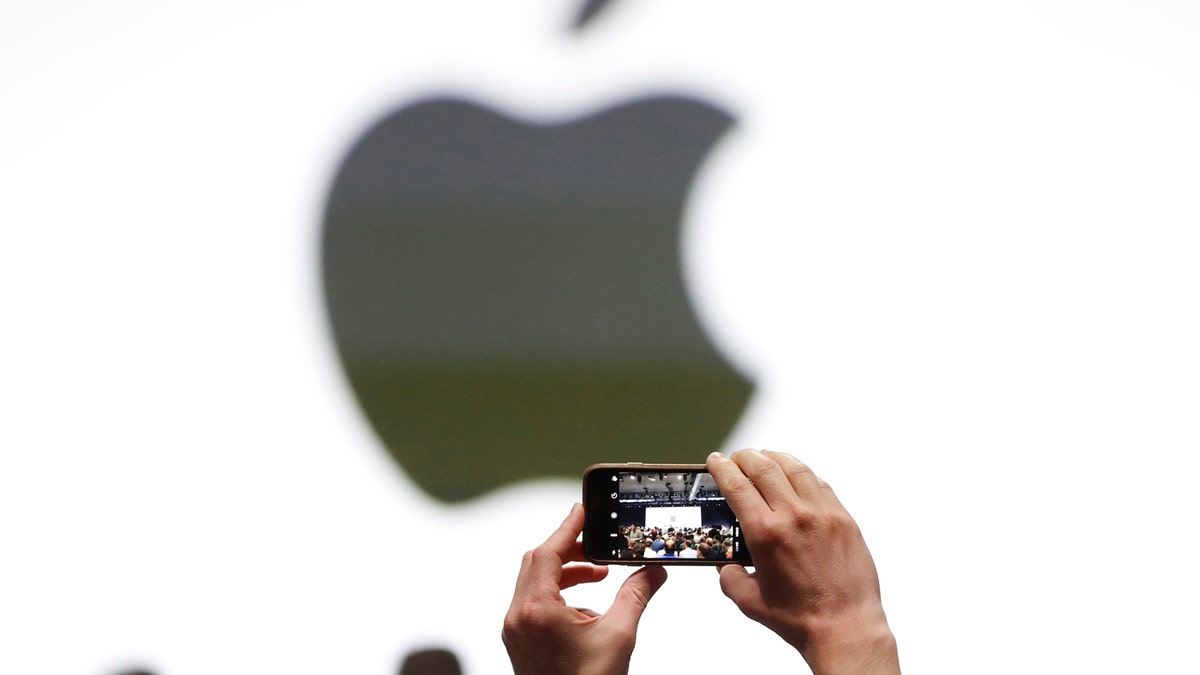
File photo: An audience member takes a photo of the Apple logo before the start of the company's annual developer conference in San Jose, California, U.S. June 5, 2017. (REUTERS/Stephen Lam)
Ongoing media coverage about how third-party apps and smartphones can collect your data has prompted a group of Republican lawmakers to investigate the privacy practices at Google and Apple.
On Monday, four members of the House Energy and Commerce Committee sent letters to Apple and Google's parent company Alphabet about their concerns, along with a list of over a dozen questions to answer. "Recent reports have indicated that consumer data, including location information, recordings of users, and email contents, may be used in ways that consumers do not expect," the letters read.
The lawmakers sent the letters after The Wall Street Journal reported on how Google permits hundreds of third-party software developers to scan the inboxes of Gmail users, who have signed up for their apps.
The Journal pointed to the case of Return Path, a marketing service that scans the inboxes of over two million users. The scanning is usually done by computers. But two years ago, the developer let employees review about 8,000 private unredacted emails to help them train the company's software.
More From PCmag
The lawmakers are asking Alphabet to provide a list of all third-party providers with access to Gmail inboxes. They're also demanding to know what Google does to police third-parties from abusing people's data obtained from Gmail and over the Google Play app store.
In addition, the lawmakers have questions regarding the data collection occurring through smartphones. They're demanding to know whether iPhones and Android handsets can secretly record audio conversations, without the owner's consent.
One concern is the role of digital assistant software on smartphones. The software is technically always listening, usually for a special trigger phrase such as "Okay Google or "Hey Siri." However, the lawmakers are worried that the smartphones may be also vacuuming up "non-triggered" data.
"It has also been suggested that third party applications have access to and use this 'non-triggered' data without disclosure to users," the letters add.
Another concern is what location data a smartphone can collect. For instance, does an Android device still record and store nearby cellular tower information when the SIM card has been removed? What about when the WiFi and Bluetooth capabilities have been disabled?
In response to the letter, Google simply told PCMag: "Protecting our users' privacy and securing their information is of the utmost importance. We look forward to answering the Committee's questions."
So far, Apple hasn't commented.
The lawmakers ask that both Apple and Alphabet respond to their questions by July 23. The letters were signed by Greg Walden of Oregon, Marsha Blackburn of Tennessee, Gregg Harper of Mississippi, and Bob Latta of Ohio.
This article originally appeared on PCMag.com.








































